Search Results
Showing results 1 to 17 of 17
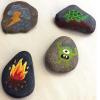
Story Stones
Source Institutions
In this activity, learners will exercise their imaginations and artistic skills. Appropriate for all ages, learners will create unique pieces to jumpstart storytelling sessions.
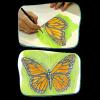
Draw a Monarch Butterfly: Scientific Illustration
Source Institutions
Ivy Rutzky, a scientific assistant at the American Museum of Natural History, introduces an activity where learners create a scientific illustration of a monarch butterfly.
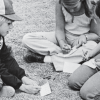
Attention!
Source Institutions
In this outdoor art/environmental activity, learners create designs that will attract attention to animals and plants in particular habitats, and then test whether their designs attracted the "right"
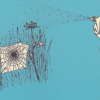
Web Weavers
Source Institutions
In this outdoor science/art activity, learners investigate spider webs by using string to create their own spider webs.

Amazon Water Cycle Roleplay
Source Institutions
In this creative roleplay activity, learners will explore the various processes of the water cycle using movement, sound, and props to aid in comprehension.
Disappearing Water
Source Institutions
In this outdoor water activity, learners explore evaporation by painting with water and tracing puddles. Learners will discover that wet things become dry as the water evaporates.
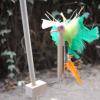
Woodpecker
Source Institutions
In this activity, learners construct a traditional handicraft toy that illustrates a motion commonly associated with violins and earthquakes.
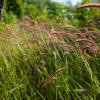
Habitat Observations
Source Institutions
In this outdoor activity, learners discover the wonders of the habitat surrounding them.

The Carbon Cycle and its Role in Climate Change: Activity 3
Source Institutions
In this activity, learners explore the human influences on the carbon cycle and examine how fossil fuels release carbon.
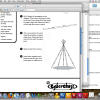
Make a Tikiville Teepee
Source Institutions
In this great hands-on activity, learners use patterns to make a teepee from newspaper that they sit inside.
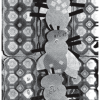
Bee Builders
Source Institutions
In this activity, learners make a model of a beehive using simple materials.
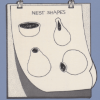
Bird Nests
Source Institutions
In this outdoor activity, learners build bird nests and place them in the activity area, then play the role of naturalists as they try to locate each other's nests.
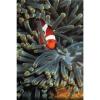
Underwater Hide and Seek
Source Institutions
In this activity, learners experience firsthand how marine animals' adaptive coloration camouflages them from prey.
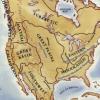
Woodlands Map
Source Institutions
This is a culminating activity which allows learners to summarize what they know about Woodlands Native Americans by creating illustrations and map symbols for a large outline map (see related Activit
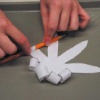
Moving On Up: Capillary Action II
Source Institutions
Learners explore capillary action in plants (such as plants ability to move water from roots to leaves) in an investigation called Paper Blooms.
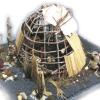
If You Lived in a Forest
Source Institutions
This activity encourages learners to focus on the natural environment of the Eastern Woodlands before the arrival of European settlers.
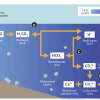
Coral, Carbon Dioxide and Calcification
Source Institutions
In this group activity, learners act out key stages of the "ocean carbon cycle" (also known as the "carbonate buffer system") through motions, rearranging blocks and team tasks.
